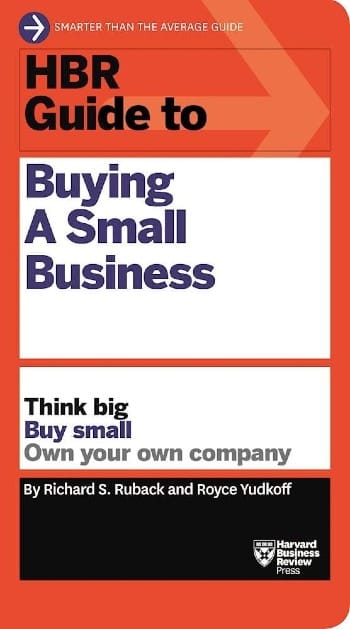Pivot #5: Red Wings Defenceman Pivots, Curating Social Media, ETA

1st Period - Curate Your Social Media
Sitting on the bus during the road trip. Hunkering down in your seat on the plane. Hanging out after practice. Winding down after a game. Killing time between errands. What do all those scenarios have in common? You’re likely pulling out your phone to scroll. My iPhone sends me my weekly screen time report and it's consistently embarrassing. There’s almost no way around it. Screen time on our phones is ingrained in the modern lifestyle. Instead of fighting it though, use it to your benefit.
The vast majority of scrolling is spent on social media. Instagram, Twitter/X, Facebook, or TikTok are all fighting for your eyeballs, re-engineering algorithms to place more targeted, addicting content in front of you. I’ve spent too many times burying my head in Zire Golf reels for an uninterrupted half hour.
What I have improved at is curating my social media. For all the negativity social media garners, it can be equally beneficial. You can pretty much get access to anyone’s ideas/thoughts, real time news, and analysis on any topic in the world. The sharing of information is unbelievable and it's all at your fingertips. I’ve learned more from some Twitter threads than I have from most books. However, it’s on you to get the algorithm to operate in your best interest.
Less buddy’s bachelor party and more business analysis. Less high school friend’s baby gender reveal and more industry insights. Still keep tabs on your buddies, but start to intentionally navigate the content you're consuming. It’s this informal osmosis of education. Every time you open your phone you’re learning, collecting new ideas, and drawing connections. You never know what the spark will be that will lead you down a path, but you have to have insightful, compelling content on your phone to kindle serendipity.
Whatever topic you’re interested in, go seek out the leaders in those topics. Follow them on social media. Look at their following list and you get direct access as to what industry leaders are consuming. For example, if you’re interested in capital markets or the economy, you could go follow Ray Dalio, hedge fund titan, on all the social platforms. Dalio may share some interesting insights, but what is more valuable is likely figuring out who he is reading by checking his follower list.
Your time is super valuable and you should treat it as such. Time is the scarcest resource in the world and you should be very protective of what you spend your time consuming. Conduct an audit of all your social media platforms. If anyone is a waste of time, not interesting, not important to you, negative energy then ax them. You don’t need your eyes wasting brain power to compute those words. Move on. Additionally, I’ve found over time my preferences change, and with that, the sort of content I enjoy on social media changes. It’s been beneficial to drop old content sources I don’t find value in anymore.
Curating the content on your phone is like changing the trajectory of a ship a couple degrees. It’s very small, informal changes at first, but it gets you heading down the right path and exposing yourself to new ideas. It’s a great form of informal education that can be interactive. I’m constantly bookmarking articles and insights to come back to. Twitter still is probably my top information gathering source out there. Curation is a small, simple tactic that makes the most of all those minutes spent scrolling.
2nd Period - Entrepreneurship Through Acquisition
In business, the term “Entrepreneurship Through Acquisition” or ETA has become a hot topic. Simply put, it’s a business model where individuals or small groups of investors actively seek to acquire and manage existing small businesses rather than starting a new venture from scratch. This approach allows entrepreneurs to take over an established business with existing operations, customer base, and revenue streams. During business school at Kellogg they offered a class on the subject that I was able to take. Large pools of sophisticated capital are even putting together what’s called a “Search Fund” where they back a promising young entrepreneur/CEO to go find an existing small business they could acquire and operate. This investment trend gained so much attention, simply because of the opportunity.
The opportunity is the current and future wealth transfer from Baby Boomers to younger generations. Here’s the broad strokes of the setup:
- Baby Boomers have trillions of dollars of wealth that they are currently or plan to tap into to enjoy retirement
- A significant portion of that wealth is tied up in the equity of the small businesses they own and operate
- The majority of those small businesses do not have an exit/succession plan; importantly, many of the children of these small business owners do not want to take over the business.
- The business owners need to find liquidity to take full advantage of their years of wealth creation
Therein lies the opportunity. Forget innovating a new product or tinkering with a new invention. Reinventing the wheel is not required. Acquire an existing business that’s already profitable. There are opportunities everywhere, especially if you live in a small town. There are small town business owners that run highly successful companies that are looking for an exit plan.

The small businesses looking to be sold are typically pretty vanilla. Auto service, industrial parts, materials manufacturers, business services, or even wealth management. A generic description of this sort of opportunity is a $3 million revenue business with 25% earnings margins, so spitting out $750k in annual earnings, that you could buy for 5x earnings, or $3.75 million. You don’t have a few million bucks to fork out you say? This is where you need to get creative with financing. Overall, I’d say some sort of small down payment (5-10%), SBA loans and seller financing are enough to solve the capital stack. The specifics of the financing are beyond the scope of this article, but I would emphasize seller financing is a powerful option at the small business level.
The opportunity is ripe for a hockey player that is retiring soon or recently retired that has a small nest egg that could last 2-3 years. Find a mentor, a successful businessperson, a business you’re interested in and inquire about their exit options. Once you’ve sourced an opportunity, arrange a deal where you come aboard the business and the owner continues for a 1-3 year period. During that time, you learn everything about that business until ultimately the business is running in your hands. After that transition period, you own a small business that is earning $750k that you’re pulling a large dividend from. And guess what, you can hire a CEO for the day-to-day of that business and then rinse-and-repeat what you just did.
Even if you're already well on your way in your working career, the generational shift of wealth and business offers an opportunity to contemplate acquiring side businesses and building a portfolio of revenue streams. The real estate market is locked up for now, but at some point a swath of Baby Boomers will look to liquidate the rental units they bought 25 years ago. The snow cone stand in town, the car wash down the block, or the summertime kayak rentals on the lake are all potential side hustles or lifestyle businesses that need new, young owners moving forward.
I’m grossly oversimplifying the process and requirements to execute this strategy, but this is certainly a highly feasible route to take. The intent behind the post is to flag the opportunity set and make you think. Sophisticated capital is swarming this opportunity for a reason. There are too many sellers of businesses out there, giving way for shrewd, capable, young buyers. If you’re interested in this path check out the book, HBR Guide to Buying A Small Business by Ruback and Yudkoff. I’ve read it. Great book. Easy read. Simple, large font, double-spaced, a lot of charts, but to the point and informative.

3rd Period - DeKeyser Pivoting Smoothly

Back in October, the Detroit Free Press wrote an article profiling former Red Wings defenceman, Danny DeKeyser’s transition from the NHL to retirement. Check out the article here. First off, super cool for DeKeyser to offer an inside look at his post-hockey pursuits. Overall, it appears he's building a successful second act. The article is insightful, highlighting the challenges pivoting from the game along with successful tactics DeKeyser employed. Let’s break it down.
The Challenge is Real
“I guess it's just one of the things you really never prepare for as a hockey player…You just gotta go through it and it kind of sucks.” - Danny DeKeyser
You can’t put it any more bluntly than that. It sucks, but it’s inevitable. Regardless of the playing level achieved, it’s a challenge, often tied to identity issues. It affects all of us. Despite the financial reward of playing at the highest level, the psychological and emotional issues associated with pivoting from hockey can impact NHL players the most.
The part of the quote Pivot aims to change is “you never really prepare for”. I think players can prepare to minimize the challenge of leaving hockey, but not erase it completely. More resources and communication about those resources are required.
Hockey players are discipline in so many facets of their life: fitness, nutrition, mental focus, game preparation. Players need to think about their pivot from hockey as another area they need to become disciplined around. Simply dedicating an hour per week through the course of a career compounds substantially.
Interest + Expertise
DK’s quest for a post-career occupation fits nicely within the Pivot Framework written about previously. Based on the article, DeKeyser combined 1) Residential real estate interest and 2) His expertise of the local area. Starting with the latter, DK is an “Eastsider”, as the article alludes to, having been born and raised in the area. Danny has an innate familiarity with the area, allowing him to focus his time and energy on the other facets to become a successful realtor. Hypothetically, if DK opted to settle in Tempe, AZ, learning the ins-and-outs of the geography is another variable that would prolong the learning curve. Expertise of an area certainly counts as a skillset to leverage. Clearly, Danny self-reflected, realized he spent free time browsing Zillow and picked up on his proclivity for real estate. What do you spend your free time? What interests you? It’s a simple, but instructive exercise to help guide your path.
Take Yourself Serious
DeKeyser shares a shrewd tip he received from Andy Dirks, a former Detroit Tigers outfielder turned real estate professional”
“He said the biggest thing from going from an athlete to a real-estate agent is making sure people know that you're serious about what you're doing… because there's a lot of people that'll be like, ‘You know, well, he's a hockey player or baseball player. How serious is he really at what he does?’”
The Red Wings allure may help get people in the door, but quality of service keeps them. No one gives a shit about being a retired hockey player if you can’t guide clients through a transaction. To DeKeyser’s credit he is not using his NHL status as a crutch; it’s a "nice-to-have" with clients, but he’s letting his real estate skills speak for themselves. Humility and competitiveness are a powerful combination moving through your career.
Education + Credentials
DeKeyser completed his university degree during his hockey career and passed the real estate license exam in June 2023. Reverse engineer the requirements of the occupation you’re pursuing. In DK’s case, he checked the boxes on the formal education requirements, and I bet he’s pursuing informal education (reading, podcasting, meeting with mentors, etc.) simultaneously. Don’t be afraid to be a beginner at something. Getting educated builds competency, which leads to confidence.
Take the same work ethic utilized in hockey and apply it to the new craft. The educational process also proves you’re taking the new craft seriously, working in earnest to improve. If you’re a widget salesperson, don’t be a dweeb widget salesperson. Don’t just show up expecting results to come to you. Prepare to become the best widget salesperson. Prepare through education.
Surround Yourself with the Right Team
Coming out of Western Michigan DeKeyser was the premier college hockey free agent. Most of the league was recruiting him as he went through the diligence process with his family and representatives to select the franchise that was right for him. I do not know directly, but I would guess he was looking for the organization that was going to give him a combination of proper development, opportunity to play, and ability to win. Overall, he wanted the team that was going to invest in him. DK found himself in a not too different situation when you think about it, granted without the fanfare and headlines. He knows the importance of working in an organization that is aligned with your long term goals and it looks like he found it in SarosReal Estate Services. It’s critical to find that, especially at early experience levels. Most of the time it’s best to pursue long-term development and forego the quick buck.
Structure
I sound like a broken record from prior newsletters, but it’s critical to build structure around yourself. It rings true for everyone, but especially hockey players. DK is super smart to recognize and implement structure through the brokerage’s provided training and working in office twice a week. A path towards lazy unhappiness is paved through “working from home” full-time. If your career is stuck in neutral, examine the structure built into your days and weeks.
Zero to One
The most challenging part of any endeavor (this newsletter included) is the initial launch. In real estate brokerage, the first 12-18 months are a slog, as DK points out. Building a client base, obtaining market knowledge, completing the first few transactions combine for a slow progression that will eventually be worth it. Fortunately for DK, he has the financial means to get through the early grind. He can survive without getting a check for a while. For others, that’s not the case, which means thinking critically about how to give yourself enough runway to succeed is important.
Stay Connected to the Game
DeKeyser continues to stay involved in hockey through the Red Wings alumni and operating his own youth hockey skills camps. Continue to find enjoyment through hockey while pursuing other career ambitions. Additionally, staying connected to the game bolsters your ability to continue leveraging your hockey platform. If DeKeyser brings in more real estate deals through his connections with the Red Wings alumni, all the better.
“There aren’t many parallels with hockey”
Hard disagree from me with the author here. The content is different, but the traits to be successful are the same. Competitiveness, communication, tenacity, diligence. All these traits carry over from sport to professional application, and specifically real estate in the DK example. Hockey players are not solely hockey players. Through hockey you’ve sharpened a skill set that made you excel at the sport and now you’re applying it to a different context. Danny perfectly encapsulates the spirit built through the game that carries over to his new life,
“But you know, you pick yourself up, dust yourself off and just try to find a new path forward.”
Game Notes
- The world's best and brightest are flocking to these countries - CNBC
- A16z's biggest ideas driving innovation in 2024
- He Plays the NFL’s Least Valued Position. He’s Never Been More Valuable - WSJ
- "Asymetric Networking" X Thread
- Johnny Cash on fostering creativity for song writing
- Blackstone's Byron Wien's 20 Life Lessons (RIP) - I enjoyed reading the list
- How a Navy Seal Invented TRX straps
- Complaints: On Tuesday night, the Devils survived the Canucks comeback to take the first ever Hughes Brother Showdown. Quinn 2A, Jack 1G/2A, Luke 1G. Looked like a crazy game except I didn't watch it. 1) Three legit American stud brothers, dominating the league. How is this not massive news? This should be plastered everywhere. This should be like the next Jonas Brothers. NHL marketing needs a team meeting 2) Puck drop was at 10pm ET/9pm CT. What are we doing here? Flex the game to 6pm in VAN and get this to at least 9pm ET. How is half the U.S. supposed to tune in for this? 3) The game was televised on NHL Network. I need a flow chart on how I can access NHL Network. I'm comparing FUBO??? streaming with Sling Blue and Orange streaming packages as the puck was being dropped, then I gave up. How are casual hockey fans suppose to tune-in? Include NHL Network with the rest of the games on ESPN+.

Member discussion